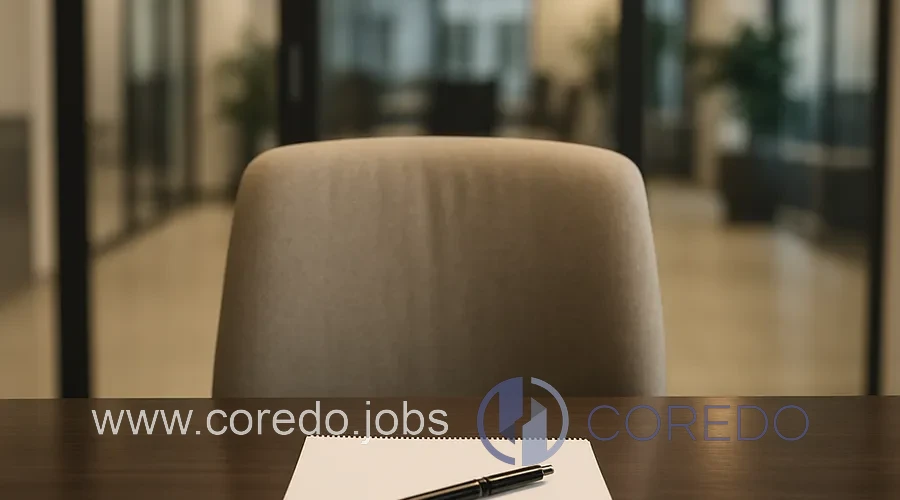Did you know that according to recent studies up to 68 % of applicants fail a job interview due to insufficient preparation for the most common questions? From our observations at COREDO.jobs it follows that strategic preparation and knowledge of interview questions determine success not only in manual jobs, but especially in managerial and marketing positions. Why is that? A job interview today is not just a formal conversation – it is a comprehensive test of personality, competencies and the ability to adapt to company culture.
When I consider why so many candidates lose their chance because of small mistakes, I see a clear connection to the psychology of interviews and recruitment strategies. At COREDO.jobs we have repeatedly confirmed that quality preparation increases career development and significantly improves ROI in recruitment for employers. If you want to understand how interview questions work and how to respond to them, I recommend paying attention to the following parts of this guide.
Most common interview questions and their purpose

In COREDO.jobs practice we encounter that key interview questions have a clearly defined purpose: to reveal the candidate’s motivation, abilities, values and potential. I will provide an overview of the most common questions across industries, including managerial and marketing positions, and explain what the recruiter is looking for:
| Question | Significance for the recruiter |
|---|---|
| Why do you want to work for our company? | Determines motivation, knowledge of the company, and the ability to align personal values with the company’s. |
| What are your strengths? | Maps key skills and their relation to the job requirements. |
| What are your weaknesses? | Tests self-reflection, willingness to learn, and to work on oneself. |
| Where do you see yourself in 3–5 years? | Looks at career development, ambitions, and the ability to plan. |
| How did you handle a conflict situation within a team? | Verifies communication skills, conflict management, and team leadership. |
| Why did you leave your previous job? | Finds out motivation for change and the ability to evaluate the past constructively. |
| What experience do you have in leading a project/team? | Maps managerial skills, candidate selection methodology, and scaling positions. |
| What experience do you have with digital marketing? | Assesses knowledge of marketing strategies, analytical skills, and project ROI. |
| How do you handle stressful situations? | Tests psychological resilience, interview tactics, and adaptability. |
| What are your expectations regarding salary and conditions? | Checks realism, negotiation skills, and knowledge of the labor market. |
Each of these interview questions is designed to reveal not only facts but also the candidate’s way of thinking. Experts at COREDO.jobs recommend paying attention not only to the content of the answer but also to the form of communication – this is often where success is decided.
How to answer interview questions?

From my experience it is key that a candidate answers authentically, professionally and with an emphasis on linking their own experiences to the company’s needs. I will give specific recommended answers and interview tactics for different types of positions:
How to answer the question ‘Why work at your company?’
I recommend linking personal values with the company’s goals. For example: “Your company is a leader in innovation in engineering. I was impressed by your strategy for scaling positions and the opportunity to take part in projects that have a real impact. I believe that my experience in team leadership and process optimization will bring value here.”
What answers do managers need?
For a question about team leadership it is appropriate to state a specific methodology for selecting candidates: “At my previous company I implemented the Scrum methodology, which increased the team’s efficiency by 30%. I focus on open communication and regular feedback, which according to our data at COREDO.jobs significantly reduces turnover.”
Answers for marketers?
The heading is too general, does not use SEO potential and is not formulated as a query the user would search for. It is short but does not convey the specific topic of the article or keywords. For better SEO potential it should be more specific and to the point, ideally framed as a user question.
For example:
These variants more clearly express the content and are closer to what the user is searching for, while being concise and within 40 characters.
For marketing positions I recommend emphasizing analytical skills: “I have experience with digital marketing strategies, including optimizing CTR and tracking campaign ROI. In the most recent project for an online store I increased the conversion rate by 25% through targeted customer segmentation.”
Answers for manual jobs
Here it is appropriate to be specific: “I have experience in metal manufacturing where I participated in optimizing production lines. I have found it effective to work according to clearly defined procedures and to regularly train in new technologies.”
What are your weaknesses?
It is recommended to avoid clichés like “I’m a perfectionist.” It is appropriate to state an area you are actively working on: “I find that I sometimes analyze data too closely, so I started using time management techniques that help me prioritize better.”
How to prepare for an interview in digital marketing?
At COREDO.jobs we have found that success comes from a combination of knowledge of current trends, the ability to present results and a clear description of your own contribution: “In interviews I present concrete data on customer LTV growth, describe the marketing strategies used and explain how I managed a team of marketers within an Agile framework.”
{{next_header}}
We build on this idea to deepen punderstanding of the key skills needed to effectively communicate results.
Interview strategies for managers and entrepreneurs

From COREDO.jobs’ experience, interviews for leadership positions require a specific interview strategy. Managerial skills should not only be declared but also concretely demonstrated. I recommend:
- Prepare specific examples of leading a team, including resolving conflict situations and implementing new processes.
- Present your projects with emphasis on achieved results – for example, increased productivity, reduced turnover, or successful scaling of positions.
- In interviews with entrepreneurs, it’s appropriate to discuss return on investment (ROI) in recruitment, optimization of HR processes, and the company’s long-term development strategy.
In projects for a pharmaceutical company we verified that presenting specific metrics (for example, a 15% reduction in laboratory error rates due to process digitalization) significantly increases a candidate’s credibility. COREDO.jobs experts recommend preparing a short presentation of your results, ideally as a case study.
How to successfully handle an interview?

The psychology of interviews is often underestimated, yet it is where success is decided. From our projects in hospitality and financial services, the following interview tactics are key:
- Nonverbal communication: Conscious posture, eye contact, and a calm voice signal confidence. At COREDO.jobs we have verified that candidates who master nonverbal communication have a 40% higher chance of success.
- Stress management: I recommend using breathing exercises, short pauses before answering, and positive visualization. In projects for a laboratory, a short mental exercise before the interview proved effective.
- Resolving conflict situations: Recruiters often test a candidate’s ability to handle conflicts. It is appropriate to provide a specific example when you constructively resolved a dispute within a team.
- Psychological techniques for candidate selection: COREDO.jobs experts recommend that recruiters use behavioral questions, anonymous questionnaires, and case studies. In an online store we implemented a model that increased candidate selection accuracy by 20%.
How to avoid mistakes during an interview?

From COREDO.jobs’ experience, the most common mistakes in a job interview are:
- Insufficient preparation: Candidates often do not know basic information about the company, which reduces their chances.
- Too general answers: Recruiters prefer concrete examples, not general phrases.
- Inability to connect your experiences with the position’s requirements: It is recommended to always state how your skills bring value to the specific company.
- Lack of self-reflection: For managerial positions, it is crucial to be able to admit a mistake and describe how you overcame it.
- Nervousness and poor nonverbal communication: At COREDO.jobs we have verified that simple preparation for nonverbal signals significantly reduces stress and increases success.
Here is a specific example from the woodworking industry: a candidate who did not show interest in company processes during the interview was rejected despite having the necessary qualifications. COREDO.jobs experts recommend actively asking about company culture and processes.
Interview preparation – checklist
From our projects across industries, successful interview preparation includes the following steps:
- Research the company: Find out information about the company’s history, values, projects, and recruitment strategy.
- Prepare answers to the most common questions: Use the recommended answers and interview tactics mentioned above.
- Prepare questions for the recruiter: Prepare 2–3 questions that show your interest in the company (e.g., “What are the key success factors in this team?”).
- Clothing and documents: Choose appropriate attire according to the industry, prepare your resume, certificates, and references.
- Mental preparation: Use psychological techniques for stress management and positive visualization.
- Language preparation: If you are not a native speaker, I recommend a short review of key phrases in Czech or English.
- Practical details: Check the time and place of the interview, prepare all necessary documents and Contacts.
COREDO.jobs experts have verified that a structured checklist significantly increases candidates’ success and the effectiveness of recruitment interviews.
How to succeed at a job interview?
In my experience, it is essential to combine interview strategy, knowledge of the most common questions and recommended answers with authenticity and professional conduct. A job interview is an opportunity to present not only your skills but also your ability to adapt, work in a team, and long-term career development.
At COREDO.jobs we have verified that success comes from a combination of quality preparation, open communication, and the ability to reflect on your own experiences in the context of the company’s needs. I recommend focusing on long-term strategies – building a personal brand, developing managerial skills, and actively monitoring industry trends.
If you are looking for a partner for legal employment, comprehensive HR solutions, or recruitment support, COREDO.jobs experts have experience across industries – from engineering through marketing to medical staff. COREDO.jobs’ practice confirms that a systematic approach to interview preparation brings stability, security, and long-term satisfaction for employers and candidates.







